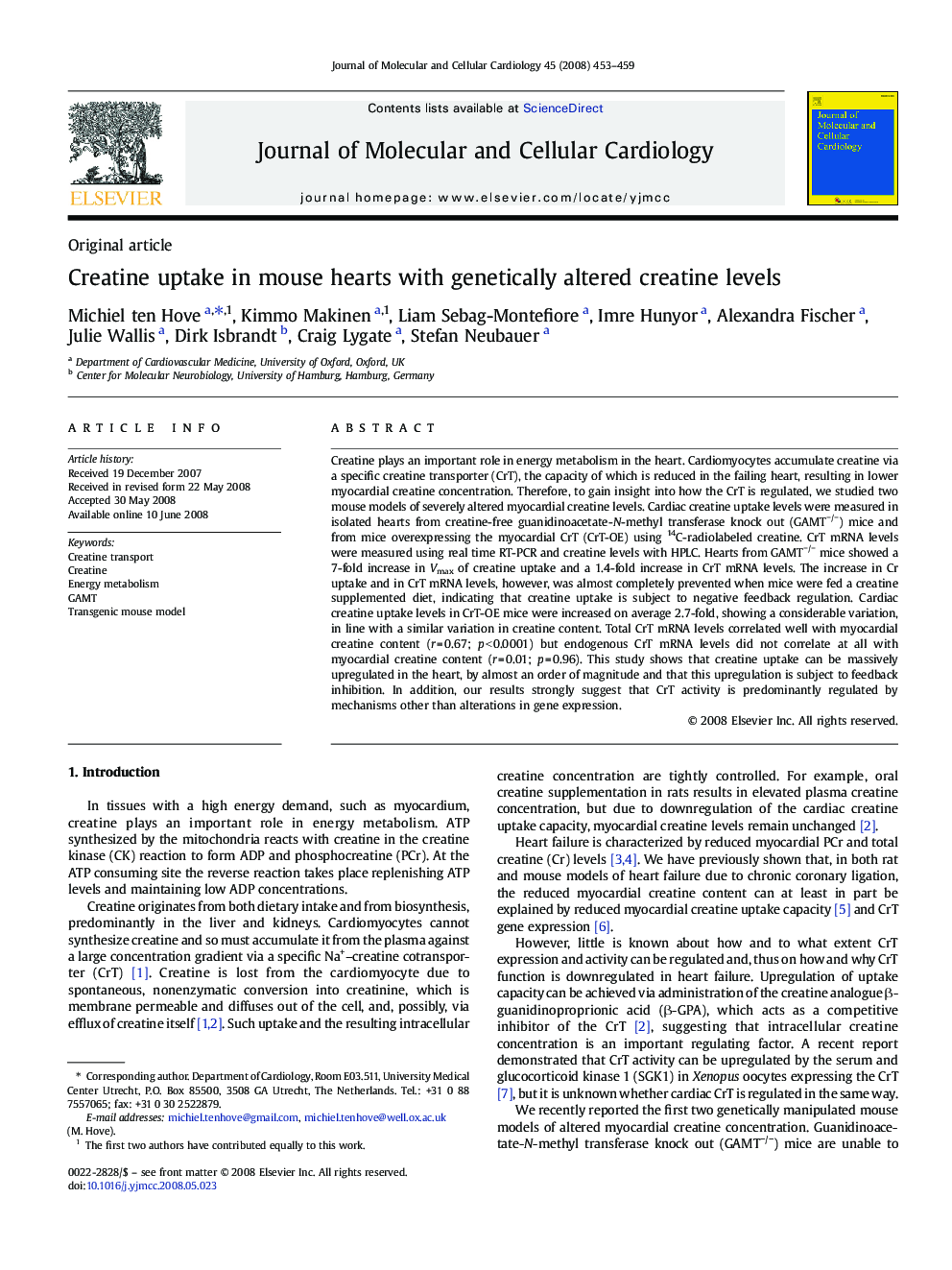| کد مقاله | کد نشریه | سال انتشار | مقاله انگلیسی | نسخه تمام متن |
|---|---|---|---|---|
| 10954260 | 1097869 | 2008 | 7 صفحه PDF | دانلود رایگان |
عنوان انگلیسی مقاله ISI
Creatine uptake in mouse hearts with genetically altered creatine levels
دانلود مقاله + سفارش ترجمه
دانلود مقاله ISI انگلیسی
رایگان برای ایرانیان
کلمات کلیدی
موضوعات مرتبط
علوم زیستی و بیوفناوری
بیوشیمی، ژنتیک و زیست شناسی مولکولی
بیولوژی سلول
پیش نمایش صفحه اول مقاله

چکیده انگلیسی
Creatine plays an important role in energy metabolism in the heart. Cardiomyocytes accumulate creatine via a specific creatine transporter (CrT), the capacity of which is reduced in the failing heart, resulting in lower myocardial creatine concentration. Therefore, to gain insight into how the CrT is regulated, we studied two mouse models of severely altered myocardial creatine levels. Cardiac creatine uptake levels were measured in isolated hearts from creatine-free guanidinoacetate-N-methyl transferase knock out (GAMTâ/â) mice and from mice overexpressing the myocardial CrT (CrT-OE) using 14C-radiolabeled creatine. CrT mRNA levels were measured using real time RT-PCR and creatine levels with HPLC. Hearts from GAMTâ/â mice showed a 7-fold increase in Vmax of creatine uptake and a 1.4-fold increase in CrT mRNA levels. The increase in Cr uptake and in CrT mRNA levels, however, was almost completely prevented when mice were fed a creatine supplemented diet, indicating that creatine uptake is subject to negative feedback regulation. Cardiac creatine uptake levels in CrT-OE mice were increased on average 2.7-fold, showing a considerable variation, in line with a similar variation in creatine content. Total CrT mRNA levels correlated well with myocardial creatine content (r = 0.67; p < 0.0001) but endogenous CrT mRNA levels did not correlate at all with myocardial creatine content (r = 0.01; p = 0.96). This study shows that creatine uptake can be massively upregulated in the heart, by almost an order of magnitude and that this upregulation is subject to feedback inhibition. In addition, our results strongly suggest that CrT activity is predominantly regulated by mechanisms other than alterations in gene expression.
ناشر
Database: Elsevier - ScienceDirect (ساینس دایرکت)
Journal: Journal of Molecular and Cellular Cardiology - Volume 45, Issue 3, September 2008, Pages 453-459
Journal: Journal of Molecular and Cellular Cardiology - Volume 45, Issue 3, September 2008, Pages 453-459
نویسندگان
Michiel ten Hove, Kimmo Makinen, Liam Sebag-Montefiore, Imre Hunyor, Alexandra Fischer, Julie Wallis, Dirk Isbrandt, Craig Lygate, Stefan Neubauer,